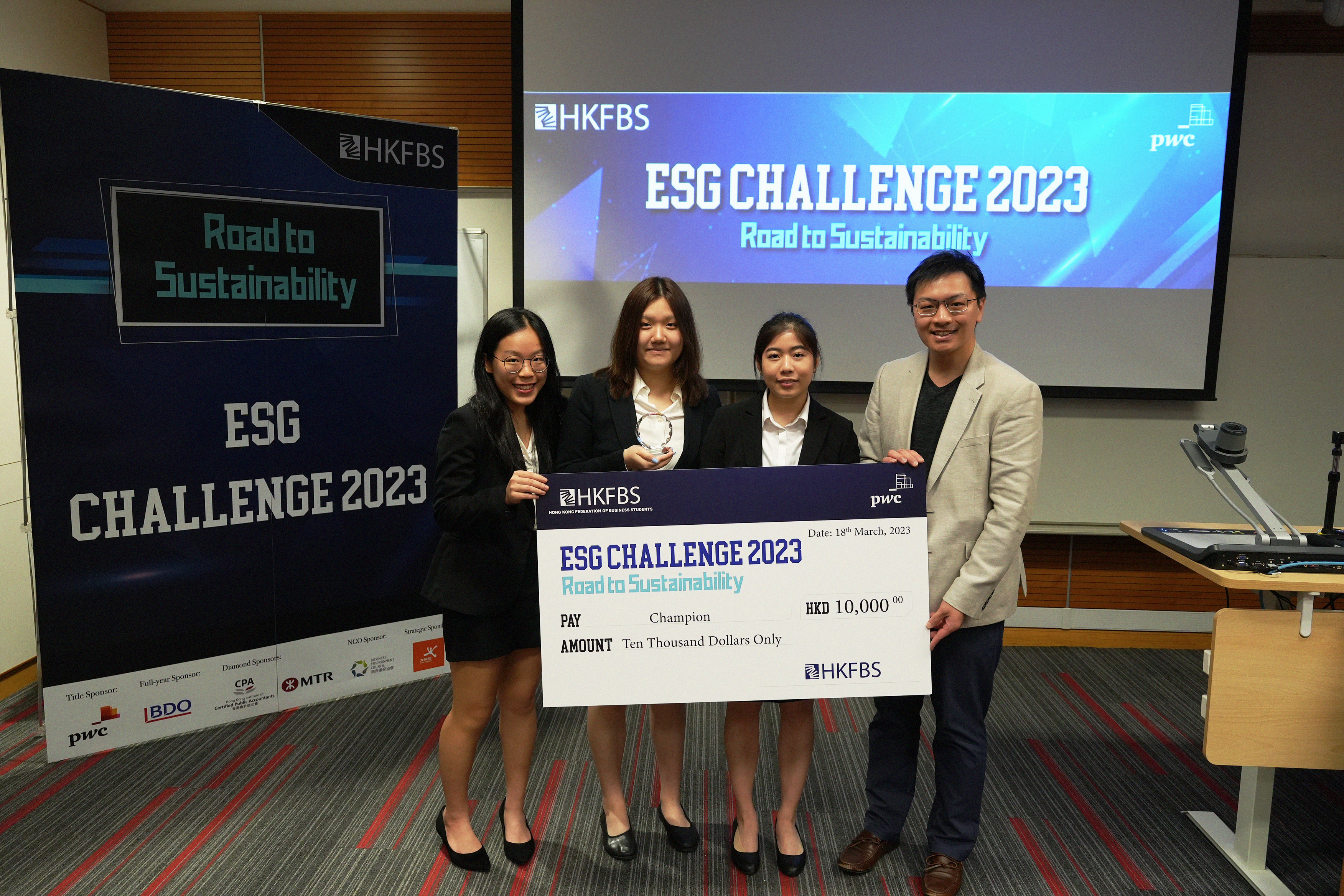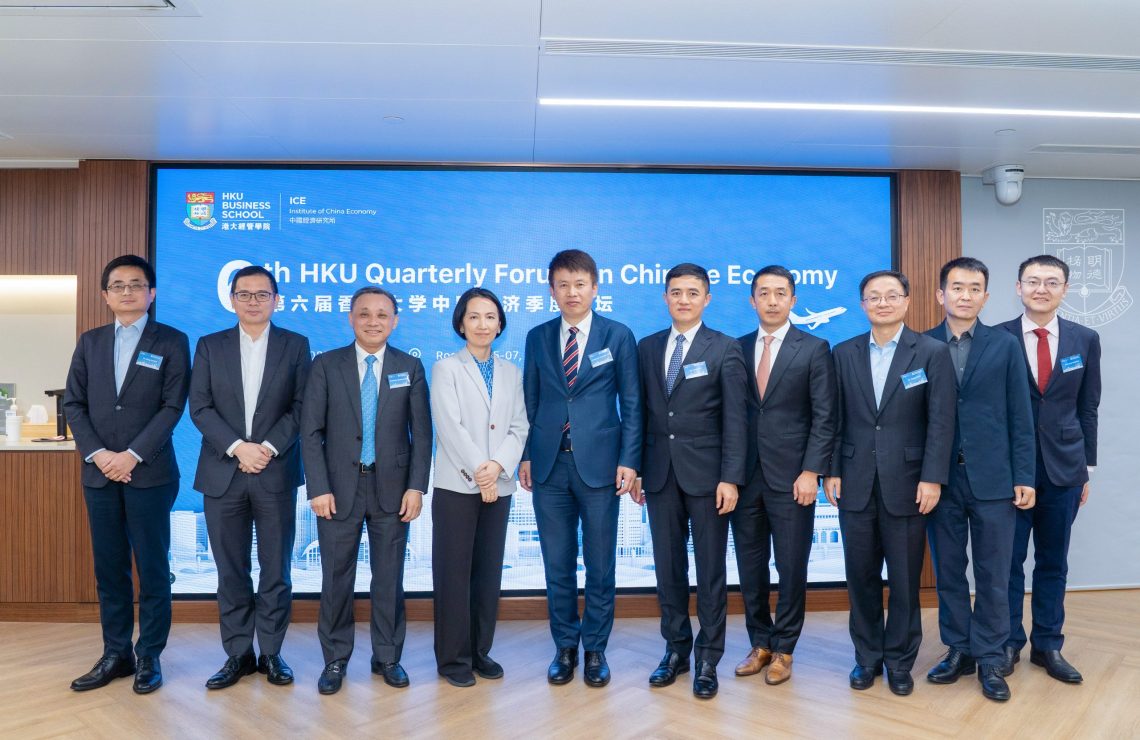ESG Challenge 2023
Background:
The ESG Challenge was an annual case competition organized by the Hong Kong Federation of Business Students (HKFBS) which aims to raise awareness among university students about the importance of Environmental, Social, and Governance (ESG) in different industries. With the sponsorship from PwC, this year’s competition focused on sustainability in the Food & Beverage industry with the theme – “Road to Sustainability”. Teams of 3 to 5 students had to propose a long-term project to solve or alleviate an existing waste in a self-selected F&B company, focusing on Life Cycle Assessment (LCA) to assess the environmental impacts.
The competition involved three rounds – preliminary, semi-finals, and finals. In each round, teams had to submit a revised and lengthier proposal based on their initial idea, as well as complete a LCA for their proposal. For the final round, teams had to present their idea in front of a panel of judges and answer questions from them. The competition provided students with valuable opportunities to apply their knowledge and think critically about ESG concepts in real-world scenarios.
Website / Image URL:
https://www.hkfbs.org.hk/functions/esg2023
Award:
Champion
Team Members:
Ms. Tsang Zoe, BBA(IBGM), Year 1
Ms. Fung Sem Tou Sheryl, BBA(Law)&LLB, Year 1
Ms. So Mei Chi Germaine, BBA(IBGM), Year 1

From left to right: Ms. Zoe Tsang, Ms. Germaine So, Ms. Sheryl Fung
Students Sharing:
“The ESG Challenge was definitely one of the most stimulating case competitions I have ever joined, as it was not easy to think of a new and innovative ESG solution for established F&B chains. However, once we were able to settle on a solid idea, it has transited into a rewarding and inspiring journey of learning more about how the profits of a company are not just affected by their business activities, but also by their ESG actions. The case competition truly helped my teammates and I learn more about this upcoming business focus and trend.”
(By So Mei Chi Germaine)
“For the First Round, teams were required to submit a 5-page executive summary. 12 teams were selected to proceed into the Semi-Final, then 4 finalist teams pitched their proposals in the Grand Final. Our team devised a circular solution – “Tesco’s Environmentally Sustainable Cattle Operation (TESCO)” which upcycles Tesco’s food waste through insect farms into protein supplements for cattle in Tesco’s dairy farms. I am glad that our team performed well and won the Championship at last.
My parts were the LCA (life cycle assessment) and Financials sections, which were quite technical. I read many scientific papers while compiling and comparing information about pollutants emitted, energy use, and land use during the various alternative processes of producing protein supplements for cattle. Besides, it was my first attempt in doing financial analysis, such as projecting costs and conducting a cost-benefit analysis. It was a refreshing experience and a great learning opportunity, and I hope to collaborate with my teammates Germaine and Zoe again soon.”
(By Fung Sem Tou Sheryl)
“I have gained a better insight into what ESG is, and beyond that, I have learned how to apply ESG concepts in an actual business/real-life setting. Other than knowledge gains, I have strengthened all forms of soft skills, such as presentation, collaboration, and leadership skills.”
(By Tsang Zoe)







